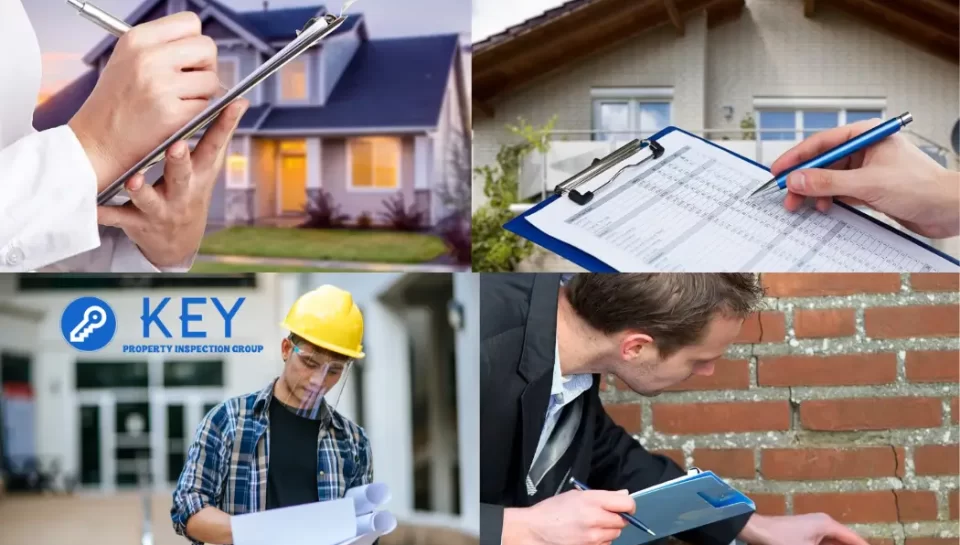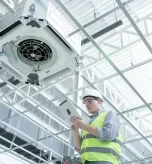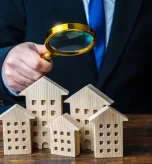In the dynamic and competitive real estate market of Los Angeles, home inspections play a crucial role in ensuring that buyers and sellers make informed decisions. A home inspection is a thorough evaluation of a property’s condition, covering everything from structural integrity to the functionality of essential systems. Whether you’re a first-time homebuyer or a seasoned real estate investor, understanding the role of a home inspector Los Angeles can help you avoid costly surprises and ensure a smooth transaction.
Why Home Inspections Are Vital in Los Angeles
Los Angeles is a city of diversity—not only in its people and culture but also in its architecture and real estate. Homes in the city range from historic bungalows to sleek, modern mansions and high-rise condominiums. Each type of property presents unique inspection challenges. A home inspector’s job is to provide a detailed report on the condition of the property, highlighting any potential issues or repairs that may be needed.
Given the high property values in LA, buyers are particularly eager to ensure that their investments are sound. Likewise, sellers benefit from having their homes inspected before listing, allowing them to address any issues that could deter potential buyers or lower the selling price. With homes in Los Angeles often selling for millions of dollars, a home inspection is a relatively small investment that can save thousands in unexpected repairs.
Read More: Orange County Home Inspection Comprehensive Guide
Key Elements of a Los Angeles Home Inspection
Earthquake Preparedness and Structural Integrity
One of the most critical aspects of home inspections in Los Angeles is evaluating a home’s earthquake preparedness. Located in a seismically active region, LA is prone to earthquakes, making it essential for homes to be structurally sound. Home inspectors check for signs of foundation damage, structural weaknesses, and retrofitting measures such as anchor bolts, cripple wall bracing, and foundation bolting. For homes in hilly areas, inspectors also assess the risk of soil erosion and slope stability.
Roofing and Weather-Related Damage
Despite its sunny reputation, Los Angeles does experience seasonal rains and occasional heavy storms. Inspectors look for signs of leaks, water damage, and wear on roofs. Given the variety of roofing materials used in LA homes—ranging from Spanish tile to asphalt shingles—home inspectors must be knowledgeable about how each material performs in the region’s climate. Homes in older neighborhoods may have roofs nearing the end of their lifespan, so it’s critical to identify potential repair or replacement needs.
Plumbing and Sewer Lines
Many homes in Los Angeles, particularly those in older neighborhoods like Echo Park, Silver Lake, and West Adams, may still have original plumbing systems. Galvanized steel pipes, which were common in homes built before the 1960s, are prone to rust and corrosion. Home inspectors check for signs of leaks, water pressure issues, and outdated plumbing. Additionally, LA’s aging sewer infrastructure means that inspectors often recommend sewer line inspections, especially for older homes. Tree roots can infiltrate pipes, causing blockages that can lead to expensive repairs if not caught early.
Electrical Systems
Electrical safety is a top concern for home inspectors in Los Angeles, especially in older homes where wiring may not meet modern safety standards. Knob-and-tube wiring, common in pre-1940s homes, is an outdated electrical system that can pose a fire hazard. Inspectors assess the condition of the wiring, electrical panels, and circuit breakers to ensure that the home’s electrical system is safe and up to code. Upgrading an outdated system can be expensive, so buyers need to be aware of these potential costs before making an offer.
HVAC Systems and Energy Efficiency
Los Angeles is known for its warm climate, and a functioning HVAC (heating, ventilation, and air conditioning) system is essential for comfort during the hot summer months. Home inspectors evaluate the age, condition, and functionality of HVAC systems, checking for issues like inefficient cooling, leaks in ductwork, and outdated units. Many homeowners in LA are also concerned about energy efficiency, so inspectors often assess the home’s insulation, window quality, and overall energy performance to identify opportunities for improvement.
The Cost of a Home Inspection in Los Angeles
The cost of a home inspection in Los Angeles typically ranges between $300 and $800, depending on the size, age, and complexity of the property. Larger or luxury homes may cost more to inspect, especially if additional services like pool inspections, mold testing, or radon detection are required. While the cost may seem like an added expense, it’s a worthwhile investment that can uncover issues that might otherwise go unnoticed until after closing, potentially saving thousands in repair costs.
Read More: Protecting Your Heaven: The Vital Role of Home Inspection
Selecting a Home Inspector in Los Angeles
Choosing a reputable home inspector is key to a successful inspection process. In Los Angeles, it’s essential to work with an inspector who understands the local market, building codes, and unique environmental factors like earthquakes and wildfires. Inspectors should be certified by a recognized organization, such as the American Society of Home Inspectors (ASHI) or the International Association of Certified Home Inspectors (InterNACHI).
When selecting a home inspector, consider the following:
- Local Experience: Ensure that the inspector has extensive experience with LA’s diverse housing stock.
- Credentials and Certifications: Verify that they hold proper certifications from reputable industry organizations.
- Reviews and Recommendations: Look for reviews from previous clients and ask for recommendations from real estate professionals.
- Thoroughness: Make sure the inspector’s report will be detailed, covering all essential areas of concern.
Conclusion
Home inspections are a critical step in the Los Angeles real estate process, providing buyers and sellers with a comprehensive understanding of a property’s condition. From earthquake preparedness to pest infestations, inspectors play a vital role in identifying potential issues before they become costly problems. In a market as competitive and fast-paced as Los Angeles, having a qualified home inspector on your side can make all the difference in ensuring a successful transaction and protecting your investment.





